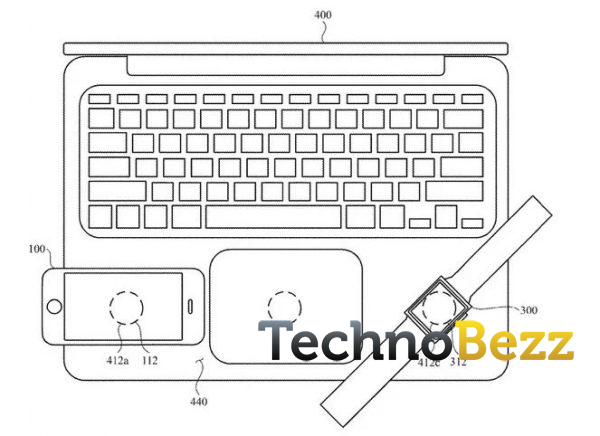GIGA phishing warning list: current fraud attempts
In a constantly updated list, we warn you about the latest phishing attempts that reach you by email, WhatsApp or SMS. So check here before you click any dubious links or install apps.
We regularly report on the latest phishing or smishing attacks, which criminals use to get you to disclose your bank account access data. Our regularly updated phishing warning list should help you to recognize such attempts. We warn you about telephone scams in our telephone number warning list.
DHL phishing with SMS from France – the GIGA list:
Recent Phishing Attacks
| Alleged sender | Description |
| 040756748093 and 040756748090 |
A Hamburg call center pretends to be an electricity supplier and wants to get the meter number and IBAN. |
| 03025555454 | Fraudulent call center with many numbers that wants to get your account number with the “lottery scam”. |
| 00359896677766 | A tape announcement reads as “Support department for the blockchain in Europe“ and informs you that your wallet has been blocked – even if you don’t have one. |
| Fake e-mails from the BKA | The BKA President personally write to you so that you can comment on the allegation of possession of child pornography. The fake emails often come with attachments that disguise themselves as PDFs, for example, but contain Trojans. |
| SMS from France with links to fake websites. | Almost every day, text messages are sent to Germany from the French mobile network, which are said to come from “DHL” or “Depost”. They usually announce a package for which customs duty still has to be paid and a link leads to a fake DHL page where the perpetrators want to steal the credit card data.45 |
| Sparkasse phishing through “employee calls” | Alleged Sprakakasse employees call outside of business hours and try to persuade their victims to hand over their PIN and TAN. |
| TONAS ER AG | A flimsy collection request is intended to persuade the victims to transfer money to a foreign account. |
| Fake SMS from Netflix | With this highly dangerous scam, the perpetrators try to get your Netflix access data, personal data and your credit card number at the same time. |
| 01728558266 | Fraudsters call as alleged Vodafone employees and try to get your password to then cheer you on a new contract. |
| Sparkasse e-mail about the alleged security system SparkasseSecure+ | A downright dangerously well-crafted phishing email that leads to a Russian server, where your Sparkasse access data is then supposed to be tapped. |
| Phishing e-mail from the savings banks: data check for the energy flat rate | E-mails or SMS from the Sparkasse and the Ministry of Finance are intended to lure visitors to websites. There, the entry of personal data should decide whether one is entitled to the payment of the energy flat rate. |
| Instagram phishing “Blue Tick” | You will be offered a “blue tick” when verifying your account. Access data for Instagram and e-mail are tapped. |
| Rip Deal: call 015218442706 | First, interest is shown in a property, only to finally persuade its owner to exchange black money, in the course of which he is cheated. |
| Federal Police calls | English tape announcement claims your identity has been stolen |
| New grandchild trick: shock call with bail demand | A fake kid calls and cries, then the cops take over and demand bail to avoid remand. |
| WhatsApp gift circle | A so-called snowball or pyramid scheme in which the founders earn and everyone else pays more. |
| Google play gift card scam | A phone call ensues, claiming a cash prize, but in order to receive it, you’re supposed to pay “carrying costs” in the form of Google gift cards. |
| Interpol calls | Alleged Interpol officials call to report abuse of ID card and ask to speak. |
| Sparda Bank phishing | With a well-made e-mail and a cleverly faked website, criminals try to get your access data. |
| sextortion | Strangers use social media sites in particular to gain their victims’ trust and then engage them in sexual chats, which end in blackmail based on the recordings. |
| DEPOST SMS package announcement | Fake DHL SMS with sender DEPOST claims that a package cannot be delivered due to the wrong address and wants money. |
| eBay-de.order links | Fake links are used to trick merchants on eBay classifieds into entering their credit card details, which are then misused. |
| Sparkasse: crypto portal | Supposedly informed savings bank her clients about how she invest in cryptocurrencies can. The personal salutation in the email indicates stolen data. A link leads to a fake page that steals your access data. |
| Sparkasse: Account confirmation | The primitive method refers to the Payment Services Directive PSD2 to make you a fake page to lead, on yours Login data be queried. |
| PayPal: Account restricted | Again and again, criminals try to make you believe with PayPal phishing that your Account can only be used to a limited extent is until you get yours on a fake site access data entered. |
| Bitcoin blackmail due to allegedly hacked computer/mobile phone | With this method, called “sextortion”, criminals try to steal you blackmail. Allegedly they hacked your computer and you recorded via webcamthan you porn viewed. To prevent the videos from being published, you should Pay amount in bitcoin. |
| Customs want money | For a foreign package does customs demand money from you because the VAT must be paid – which is complete nonsense, since the customs would demand at most the import sales tax. You are supposed to transfer the money online and then to an email address at “deutsch-zoll.de” send. |
In all cases, we advise you not to follow the links and demands and simply delete the emails.
Known phishing methods
In general, the perpetrators of phishing aim to gain the victim’s trust in order to trick them into giving out certain data that they would never tell a stranger. For example, they use e-mails that look deceptively real or call allegedly on behalf of a company.
The three greatest dangers are ignorance, gullibility, and greed. For example, if you install an app from somewhere to track the status of your package and thus get a Trojan on your cell phone that spy on bank data. Or if you are promised a prize on the phone and “only have to take out a small subscription” for it.
As everywhere in life, the principle applies “If it sounds too good to be true, then it really isn’t!”
In our video we introduce you to some phishing methods – of course there are more and new ones are added every day:
The following phishing attempts reach you particularly frequently:
- Bank phishing: You will receive very real-looking e-mails in which your bank is said to ask you to enter your access data to verify your account. Links in the emails lead to fake bank websites. Your access data will be used to empty your account or to make purchases at your expense. The method with the counterfeit pages is also called “pharming”.
- Telephone phishing: With this method, you are called by a call center. The callers claim to be calling on behalf of your bank, your cell phone provider or your electricity provider. For “data comparison”, they ask for the number of the electricity meter, for example, or ask for your security password for your mobile phone account.
- Smishing / SMS phishing: You receive an SMS that supposedly comes from a parcel service. Inside is a link that you should tap to get the shipment status. However, the link leads to a fake page that asks you to install an app – and it then spies on your smartphone.
- WhatsApp phishing: A new variant of the “grandchild trick” is used here. You get an unknown number with “Hello grandma, hello mom, hello dad‘ and asked to guess the name. Then comes a story, after which the cell phone supposedly broke. Now you have a new one (and a new, unknown number), but you can’t transfer money with it yet. “Can you do that for me, I’ll give it back to you on the weekend too?”
All of these methods trick victims into trusting them in order to then rip them off. With a little more caution and control – for example by asking the bank – you can defend yourself against it.
Don’t want to miss any more news about technology, games and pop culture? No current tests and guides? Then follow us
Facebook
or Twitter.



